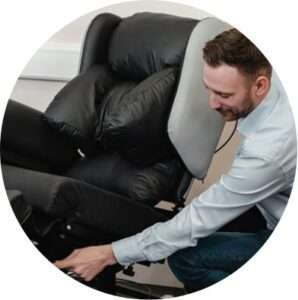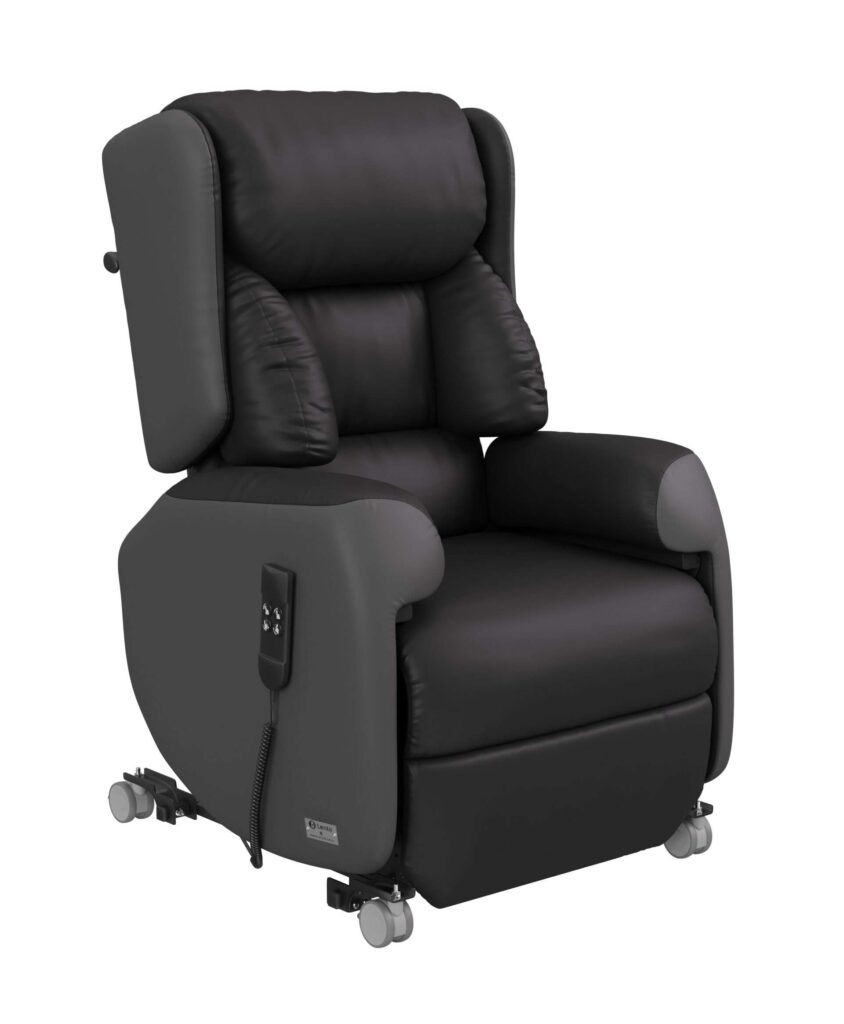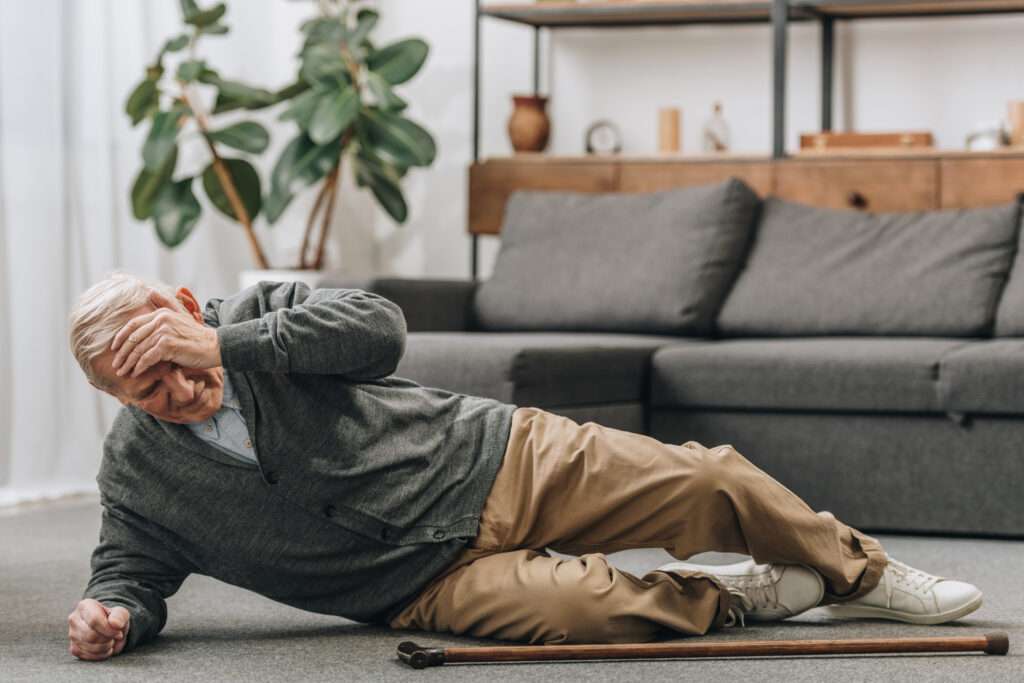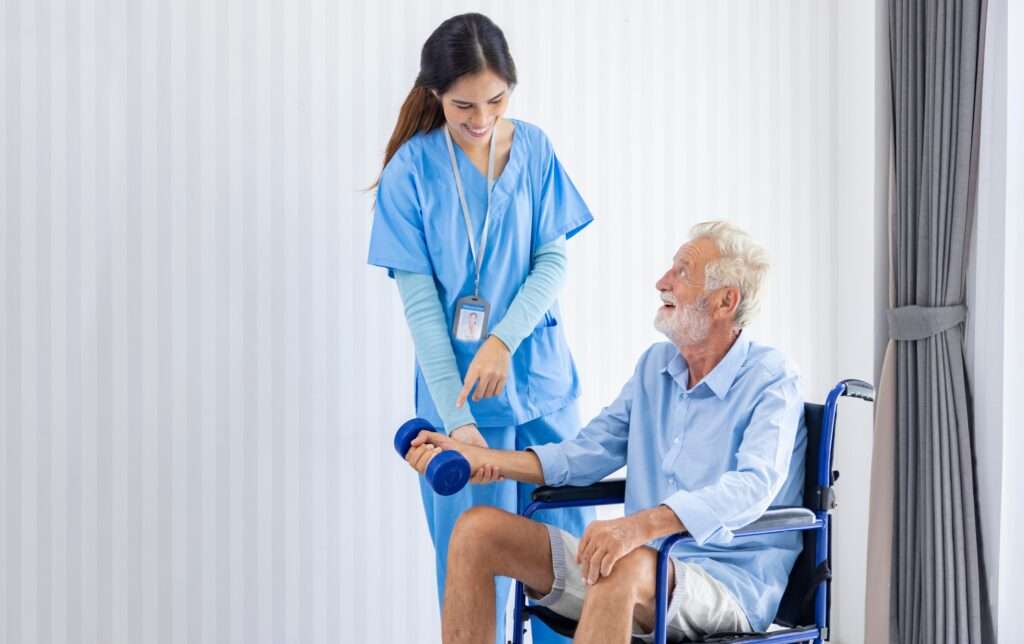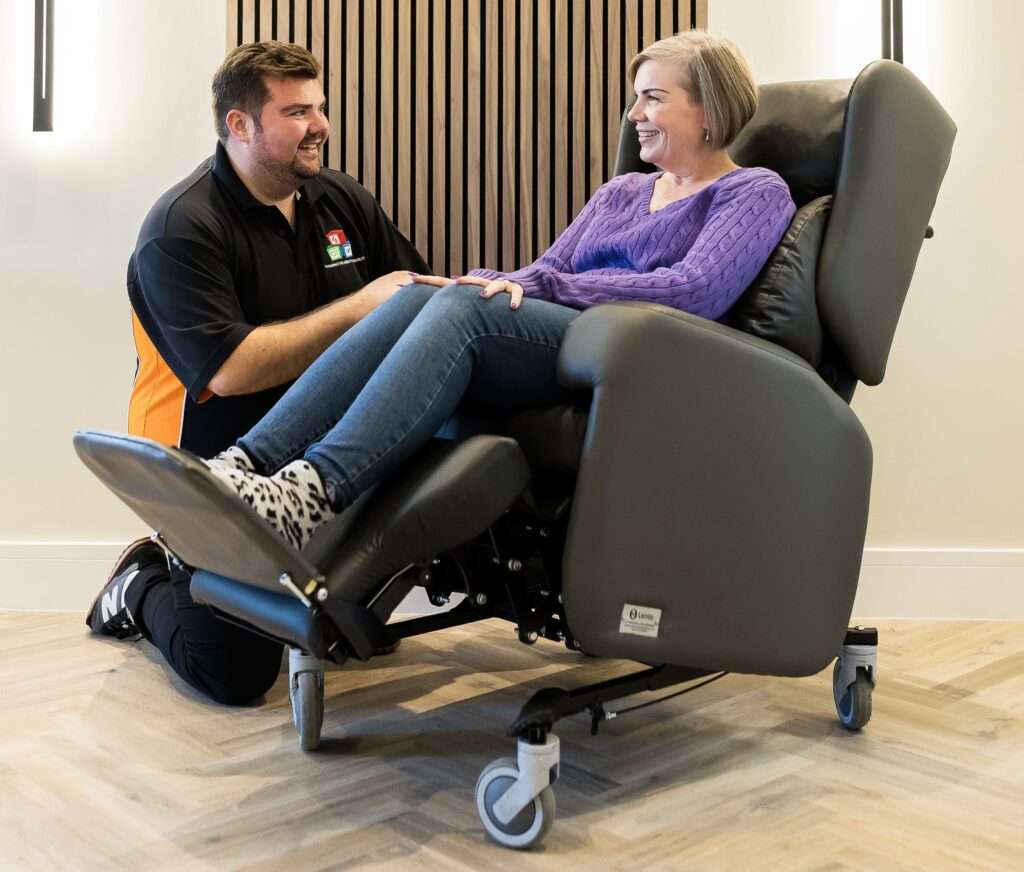A riser recliner chair can make a significant difference to people with mobility challenges, helping them sit and stand more safely and comfortably. While these chairs can be expensive when purchased privately, you may be able to receive one free of charge through the NHS and local council services, if you meet certain eligibility criteria.
This guide explains the step-by-step process to accessing a riser recliner chair through NHS funding, from referral to delivery and ongoing support.
Jump straight to...
Referral & Eligibility
The first step to getting a riser recliner chair through the NHS is to speak to a qualified health or social care professional. This could be your GP, district nurse, physiotherapist, or another healthcare provider involved in your care. They can refer you to your local adult social care department for further assessment. The provision of specialist seating depends largely on the council’s policy, some councils won’t supply it all so it depends on your Local Authority.
To qualify, you must be experiencing long-term difficulties with sitting or standing transfers, both activities that impact your ability to carry out daily tasks safely and independently. These issues often arise due to chronic health conditions, mobility impairments, or recovery from surgery or injury.
Let Us Help You Get Comfortable
Adult Social Care Needs Assessment
After your referral, your local council’s adult social services team will carry out a free care needs assessment. This is a holistic evaluation of your daily living requirements and physical environment. It aims to determine what support you need to live independently, including any specialist equipment like a riser recliner chair.
This assessment looks at your overall health, how you manage daily tasks, and whether equipment or home adaptations could improve your quality of life. If the assessment identifies that a riser recliner chair would meet your needs, it may then be provided through the Community Equipment Service (CES) on a long-term loan basis.
Specialist Seating Assessment
Once your needs have been confirmed, you will undergo a more detailed seating assessment. This is usually carried out by a trained occupational therapist (OT) or a specialist in seating and posture, either in your home or at a clinic.
The specialist will evaluate a range of factors, including:
- Your medical history and level of mobility
- Your posture and any risks of pressure sores
- How you typically transfer (whether independently, with support, or using a hoist)
- Specific seat measurements such as depth, width, and height
- Environmental considerations like room size and ease of access
You can read in more detail about the different components of a seating assessment in our guide to carrying out seating assessments.
This in-depth assessment ensures that the chair prescribed will match your physical needs and home environment.
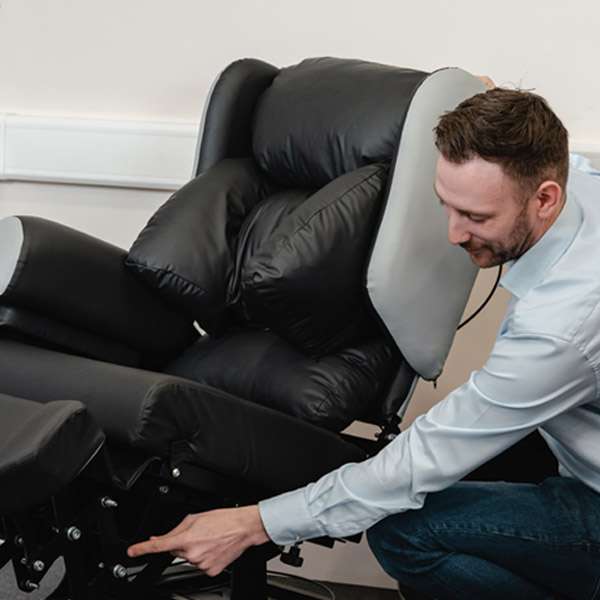
Want A Free No-Obligation Seating Assessment?
Prescription & Ordering
Following the seating assessment, the occupational therapist will write a clinical prescription for a specific riser recliner chair. This will detail the required model, size, and features, such as a riser mechanism, tilt-in-space function, and any necessary accessories.
The chair is then ordered through the Community Equipment Service, which sources products from NHS-approved suppliers. These chairs must meet safety, durability, and clinical standards, ensuring they are suitable for long-term use.
Funding & Provision
If your equipment needs fall within NHS and local authority criteria, your riser recliner chair will be provided on a loan basis at no cost to you. This includes standard delivery, setup, and basic features such as waterproof covers or pressure-relieving cushions.
All NHS-provided equipment must meet the standards laid out in NICE guidelines, particularly for discharge planning, to ensure you have the necessary equipment at home if leaving hospital care.
Delivery, Training & Maintenance
Once the chair has been sourced, the Community Equipment Service will arrange delivery to your home. The delivery team will install the chair and ensure it is set up correctly for your use. They will also provide training for you and your carers or family members, covering how to operate the chair safely and effectively.
Ongoing maintenance and repairs are also handled by CES. If you experience any faults, you can contact your local equipment helpline for repairs or replacements. A follow-up visit from the occupational therapist is typically arranged a few weeks after delivery to ensure the chair is working well for you and to make any necessary adjustments.
Alternative & Supplementary Funding
If you do not qualify for NHS-provided equipment or require additional features not covered by standard provision, there are other funding options available.
Disabled Facilities Grant
You may be eligible for a Disabled Facilities Grant from your local council. This grant can provide up to £30,000 to help pay for necessary home adaptations and equipment, including specialist chairs. It is means-tested and typically requires a professional assessment and formal application.
Charitable Funding
Charities can also offer financial help. For example, Independence at Home provides grants of up to £600 for specialist seating and related equipment. Other organisations such as WellChild, the Carter Trust, and the Family Fund offer funding specifically for children and young adults with disabilities.
Research our free charities database to find a charity that is relevant to you.

Conclusion
Getting a riser recliner chair through the NHS may seem like a complex process, but with the right guidance and support, it is entirely achievable for those who meet the criteria. By starting with a referral from your GP or another health professional, and following through the structured pathway of assessments, prescriptions, and funding channels, you can access a chair that improves your comfort, safety, and independence at home.
Frequently Asked Questions (FAQs)
Can I apply for a riser recliner chair myself?
No, you must be referred by a qualified health or social care professional such as your GP, district nurse, or physiotherapist.
Do I have to pay for the chair?
Standard models are loaned at no cost if you meet eligibility criteria. However, optional upgrades or non-standard features may require a contribution.
How long does the process take?
The timeline varies depending on your local council and CES provider. From referral to delivery, it may take a few months, sometimes even up to 12 months.
Will someone show me how to use the chair?
When the chair is delivered, CES staff will provide full training for both the user and any carers involved.
What happens if the chair breaks?
Maintenance and repair services are covered by CES. You should contact your local equipment helpline to arrange servicing.
Can children receive riser recliner chairs through the NHS?
Yes, but provision is often handled through specialist children’s services and may involve additional assessments. Alternative funding sources such as Family Fund may also help.
What if I don’t qualify through the NHS?
You may still be eligible for a Disabled Facilities Grant or charitable funding. Speak with your OT or local authority for more options.
We Work With The NHS To Get You Sitting Comfortably



